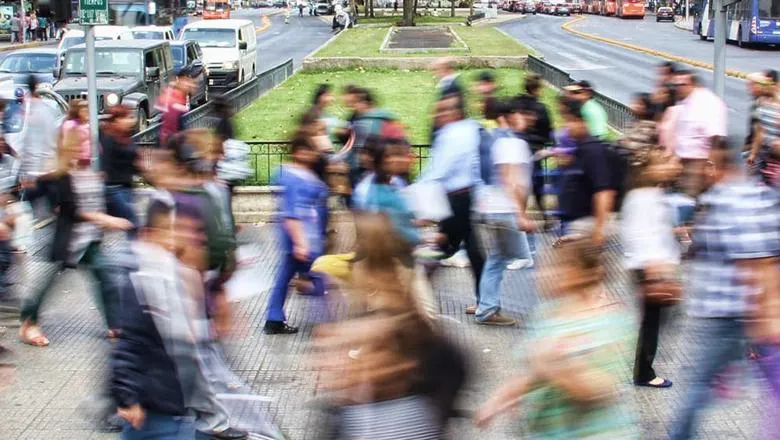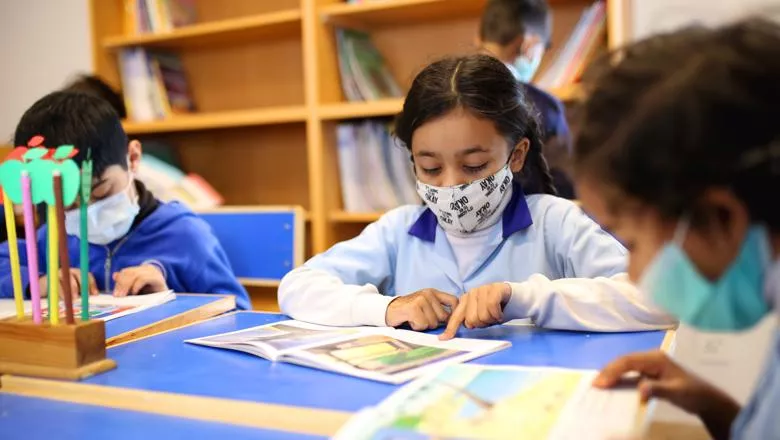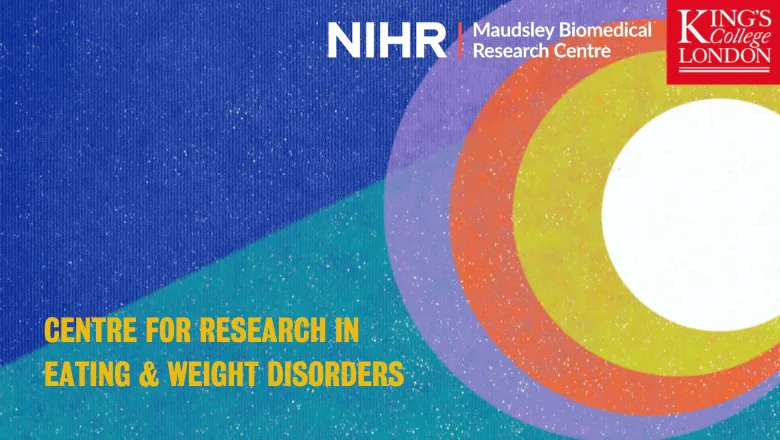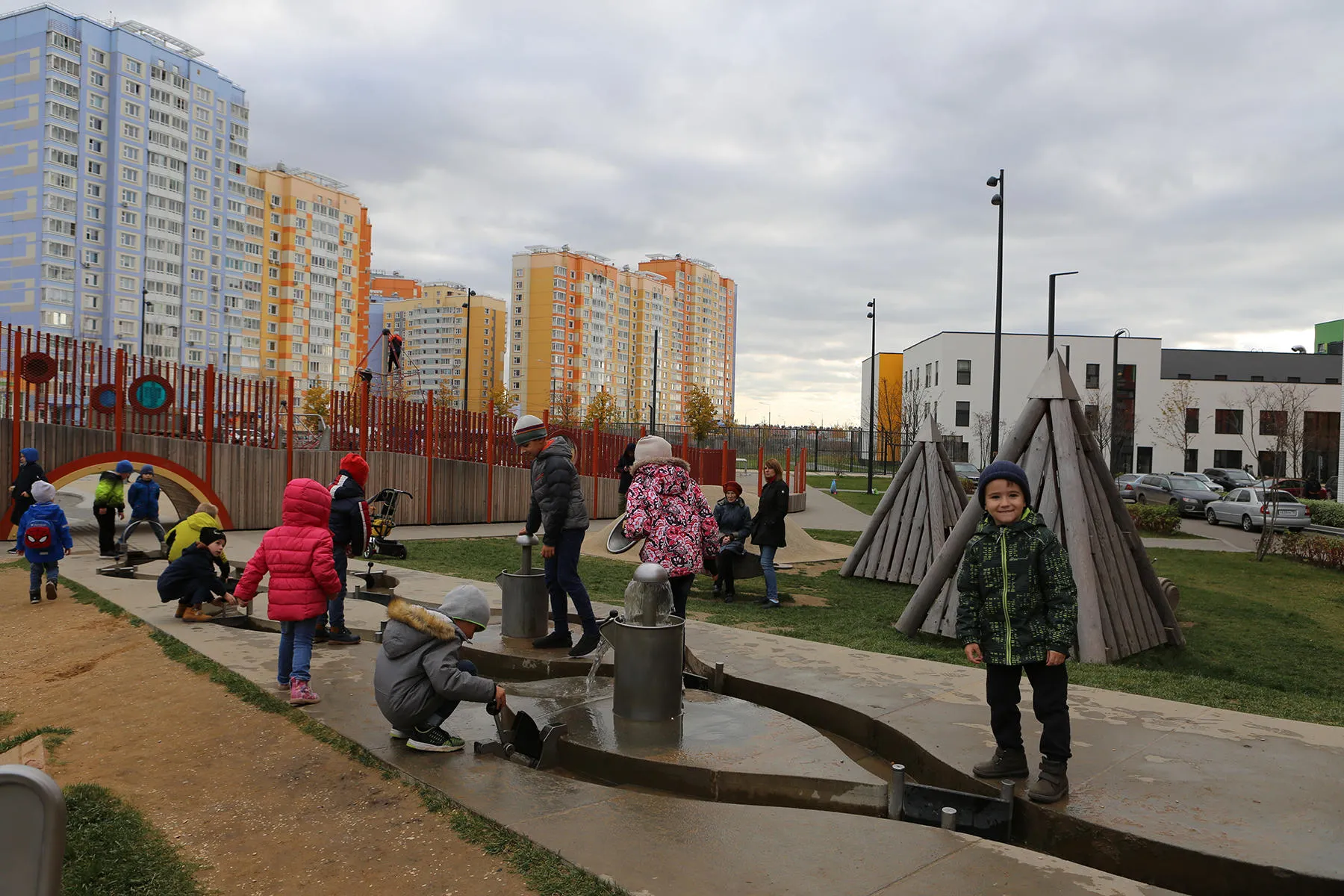
Professor Helen Fisher
Professor of Developmental Psychopathology
Research interests
- Psychiatry
- Psychology
Biography
Professor Helen L. Fisher is based in the Social, Genetic & Developmental Psychiatry (SGDP) Centre at the Institute of Psychiatry, Psychology & Neuroscience (IoPPN) within King’s. She has a strong interdisciplinary background in psychology, social psychiatry, epidemiology, genetics, and epigenetics. Her multidisciplinary programme of research focuses on the role of social, psychological, biological, and wider environmental factors in the development, course, and prevention of mental health problems in children, adolescents, and young adults.
Professor Fisher completed a BSc in Psychology at the University of Surrey, then a Masters in Research Methods in Psychology at UCL, followed by an MSc in Social, Genetic & Developmental Psychiatry and a PhD in Psychological Medicine at King’s funded by an ESRC-MRC 1+3 Interdisciplinary Studentship. For her PhD research on the interplay between childhood trauma and genetic susceptibility in the onset of psychotic disorder she received the Outstanding Doctoral Research Contributions to Psychology prize from the British Psychological Society. She was subsequently a postdoctoral fellow within the SGDP Centre for 5 years funded by fellowships from the MRC and ESRC before taking up a position as a Lecturer within this Centre in 2014 and has remained there ever since rising to the position of Reader in 2018.
Professor Fisher is also a Chartered Research Psychologist and Associate Fellow of the British Psychological Society, along with being a Fellow of the Higher Education Academy having completed her Postgraduate Certificate in Academic Practice in Higher Education in 2013. Additionally, she is a research consultant for the NSPCC children’s charity and provides training on psychosis assessment tools to NHS clinicians. She has received several national and international awards for her research including a recent Emerging Leaders Prize in Adolescent Mental Health from the Medical Research Foundation. As well as her postdoctoral fellowships, she has also held an MQ Fellows Award and a British Academy Mid-Career Fellowship.
Research interests
- Role of childhood victimisation in the onset and course of psychosis and depression and the biopsychosocial mechanisms underpinning such associations
- Individual, family & community-level protective factors for adolescent mental health
- Social neighbourhood factors and air pollution in relation to mental health
- Epidemiology, phenomenology, and outcomes of childhood psychotic symptoms
- Gene-environment interplay
- Assessment of childhood trauma
- Early identification of adolescents at risk of depression across the globe
Professor Fisher’s initial research involved evaluating Early Intervention Services for young people with psychosis and then focused on the interplay between childhood maltreatment and genes in the development and course of psychosis. She is currently extending this work to explore the social, psychological, and epigenetic factors that increase and decrease the risk of psychotic experiences persisting during adolescence among children exposed to various forms of adversity using longitudinal cohorts. She is also jointly leading projects exploring epigenetic signatures of exposure to psychosocial stressors in adolescence; biopsychosocial markers of resilience following exposure to childhood maltreatment; the role of air pollution in the development of adolescent mental health problems; and improving detection of adolescents at high risk for depression across four continents.
Teaching
Professor Fisher provides specialist lectures to a range of postgraduate courses at King’s on the role of social factors (particularly childhood trauma) in the development of psychosis, PTSD within women, and on the methods utilised to investigate the interplay between genetic and environmental factors in relation to mental health problems. She also supervises research dissertations for students undertaking Masters courses in Genetic Environmental & Developmental Psychiatry, Early Intervention in Psychosis, and Developmental Psychology & Psychopathology. Additionally, she runs an online distance learning module in Social, Genetic & Environmental Foundations of Mental Health, and acts as a personal tutor to undergraduate psychology students and Masters students within IoPPN.
Expertise and public engagement
Professor Fisher is extremely passionate about finding ways to creatively engage the public in thinking about adolescent mental health. For instance, she has consulted on several plays (‘Correspondence’, ‘Grey Man’, ‘Tomorrow I was Always a Lion’, ‘Wake’) to create a more realistic portrayal of severe mental illness in young people and participated in after-show discussions with the audiences. With support from King’s Cultural Institute and MQ, she collaborated with artist Rich Maskey, Jonny Benjamin MBE, and the Voice Collective to develop an immersive art exhibition that was exhibited in January 2017 at the Copeland Gallery in Peckham to increase public understanding of what it feels like to hear voices. A total of 190 people visited the exhibition and it was featured on the BBC World Service (starts 18 mins, 16 secs).
She has also participated in a short film on adolescent psychosis and the city for the Evening Standard and has communicated her research to a range of audiences including A-Level students (BPS events), school children (MRC/Science Museum events), policy-makers (House of Commons), business leaders (Thrive in City at Australia National Bank, and MQ events at HSBC & Howard Kennedy), as well as the public more broadly (through newspapers and the Science Media Centre, podcasts, public talks and panels). Additionally, she recently worked with ChildLine to create psychosis content on their website. This will potentially be seen by their 3,262,245 annual website visitors, and hopefully improve adolescents’ understanding of psychosis, and increase the speed with which they can receive help if they need it.
She co-produced a mental health themed tour of the National Gallery with the McPin Foundation and the NG Young Producers, funded by the MRC, which launched on 10th October 2019 to coincide with World Mental Health Day.
Research

Environmental Risk (E-Risk) Longitudinal Twin Study
E-Risk study, now in its third decade, follows the lives of 2232 twins born in 1994-95 in England and Wales. The study builds knowledge about how environmental and genetic factors shape behaviors, attitudes and health.

Social change, transitions and youth mental health
Investigating whether widespread social changes are linked to the rise in mental health problems among young people.
Project status: Ongoing

Adolescent violence and mental health
Understanding and mitigating the impact of individual- and neighbourhood-level violence during adolescence on mental health at the transition to adulthood
Project status: Ongoing

Ageing Research at King's (ARK)
Cross faculty consortium addressing ageing and healthy longevity.
News
Increased air pollution exposure during midlife may harm brain health as we age
A new study led by researchers from the Institute of Psychiatry, Psychology & Neuroscience (IoPPN) at King’s College London, has found that exposure to higher...

King's Doctoral Support Award 2024
We are pleased to announce the winners of this years King's Doctoral Support Award; Dr Lucien Heurtier, Professor Helen Fisher and Boma Campbell.

A new generation of Inspiring Women at the IoPPN
28 new portraits of internationally recognised female professors at the Faculty have been added to IoPPN’s ‘Inspiring Women’ exhibition, celebrating the...

Exposure to air pollution is associated with increased use of psychiatric services in people with dementia
New research from the Institute of Psychiatry, Psychology & Neuroscience (IoPPN) at king's College London has found exposure to air pollution is associated...

Pandemic may have triggered second 'midlife crisis' for over-50s
British adults experienced highest-ever levels of poor mental health during the COVID-19 pandemic, triggering a second ‘midlife crisis’.

Environmental Risk (E-Risk) Longitudinal Twin Study Receives £2.3m Funding
The Environmental Risk (E-Risk) Longitudinal Twin Study has been backed by £2.3 million funding from the UKRI Medical Research Council to collect new...

Generational inequalities in mental health accelerated with the COVID-19 pandemic
Generational inequalities in mental health widened over the course of the UK’s COVID-19 pandemic, according to a new peer-reviewed study published in the...

Tackling intimate partner violence could lower rates of mental illness according to new Lancet Psychiatry Commission
Intimate partner violence (IPV) is a public mental health issue that requires collective societal change to tackle it effectively, according to a Lancet...

New study demonstrates importance of art and mental health innovations
An evaluation of a National Gallery audio tour, co-developed with young people, has highlighted the value of the arts in raising awareness about mental health.

New policy briefing calls for action to mitigate the impacts of the pandemic on the mental health of young people
Researchers at King’s College London and Oxford University have outlined a series of recommendations to address anticipated short- and long-term challenges...

Events

Research Showcase in Eating and Weight Disorders
Join us to celebrate the launch of the Centre for Research in Eating and Weight Disorders at King's College London, and discover research from the NIHR...
Please note: this event has passed.

Partnering for Change: AI predicting mental health - possible futures
Part of the ESRC Centre for Society and Mental Health Festival 2022: Partnering for Change
Please note: this event has passed.

WORLD: we got this | Lockdown Spaces: How environment shapes our mental health
Join us for this discussion on how the lockdown has impacted people's mental well-being and the way in which we the environment.
Please note: this event has passed.
Features
Youth Mental Health and Covid-19: How can we build back fairer?
In 2021, a Policy Lab was held as the culminating event of a jointly run conference exploring the impacts of COVID-19 and related responses on the mental...

Your childhood neighbourhood can influence how your genes work – new study
Numerous studies have shown that children who grow up in more deprived neighbourhoods tend to have worse physical health as adults compared to those raised in...

Research

Environmental Risk (E-Risk) Longitudinal Twin Study
E-Risk study, now in its third decade, follows the lives of 2232 twins born in 1994-95 in England and Wales. The study builds knowledge about how environmental and genetic factors shape behaviors, attitudes and health.

Social change, transitions and youth mental health
Investigating whether widespread social changes are linked to the rise in mental health problems among young people.
Project status: Ongoing

Adolescent violence and mental health
Understanding and mitigating the impact of individual- and neighbourhood-level violence during adolescence on mental health at the transition to adulthood
Project status: Ongoing

Ageing Research at King's (ARK)
Cross faculty consortium addressing ageing and healthy longevity.
News
Increased air pollution exposure during midlife may harm brain health as we age
A new study led by researchers from the Institute of Psychiatry, Psychology & Neuroscience (IoPPN) at King’s College London, has found that exposure to higher...

King's Doctoral Support Award 2024
We are pleased to announce the winners of this years King's Doctoral Support Award; Dr Lucien Heurtier, Professor Helen Fisher and Boma Campbell.

A new generation of Inspiring Women at the IoPPN
28 new portraits of internationally recognised female professors at the Faculty have been added to IoPPN’s ‘Inspiring Women’ exhibition, celebrating the...

Exposure to air pollution is associated with increased use of psychiatric services in people with dementia
New research from the Institute of Psychiatry, Psychology & Neuroscience (IoPPN) at king's College London has found exposure to air pollution is associated...

Pandemic may have triggered second 'midlife crisis' for over-50s
British adults experienced highest-ever levels of poor mental health during the COVID-19 pandemic, triggering a second ‘midlife crisis’.

Environmental Risk (E-Risk) Longitudinal Twin Study Receives £2.3m Funding
The Environmental Risk (E-Risk) Longitudinal Twin Study has been backed by £2.3 million funding from the UKRI Medical Research Council to collect new...

Generational inequalities in mental health accelerated with the COVID-19 pandemic
Generational inequalities in mental health widened over the course of the UK’s COVID-19 pandemic, according to a new peer-reviewed study published in the...

Tackling intimate partner violence could lower rates of mental illness according to new Lancet Psychiatry Commission
Intimate partner violence (IPV) is a public mental health issue that requires collective societal change to tackle it effectively, according to a Lancet...

New study demonstrates importance of art and mental health innovations
An evaluation of a National Gallery audio tour, co-developed with young people, has highlighted the value of the arts in raising awareness about mental health.

New policy briefing calls for action to mitigate the impacts of the pandemic on the mental health of young people
Researchers at King’s College London and Oxford University have outlined a series of recommendations to address anticipated short- and long-term challenges...

Events

Research Showcase in Eating and Weight Disorders
Join us to celebrate the launch of the Centre for Research in Eating and Weight Disorders at King's College London, and discover research from the NIHR...
Please note: this event has passed.

Partnering for Change: AI predicting mental health - possible futures
Part of the ESRC Centre for Society and Mental Health Festival 2022: Partnering for Change
Please note: this event has passed.

WORLD: we got this | Lockdown Spaces: How environment shapes our mental health
Join us for this discussion on how the lockdown has impacted people's mental well-being and the way in which we the environment.
Please note: this event has passed.
Features
Youth Mental Health and Covid-19: How can we build back fairer?
In 2021, a Policy Lab was held as the culminating event of a jointly run conference exploring the impacts of COVID-19 and related responses on the mental...

Your childhood neighbourhood can influence how your genes work – new study
Numerous studies have shown that children who grow up in more deprived neighbourhoods tend to have worse physical health as adults compared to those raised in...

